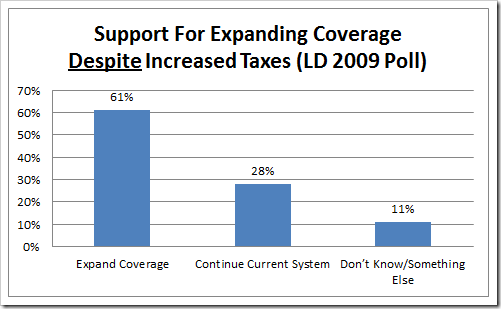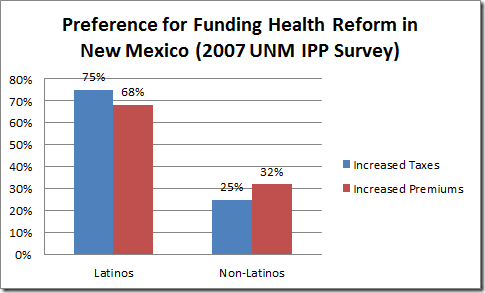The Supreme Court decision regarding the constitutionally of the signature policy victory of the Obama administration has been the most anticipated and hotly debated decision of the Court in recent memory. Chief Justice Roberts himself has not been immune to the controversy, as some critics have suggested that his change of opinion regarding the mandate was driven by political pressure. Instead of bringing closure to the partisan debate surrounding health care reform, the recent decision of the Supreme Court has made the Affordable Care Act (ACA) the dominant policy discussion at this point in the race for the Presidency. The Court’s decision to uphold the individual mandate was surprising to many and has put the Romney campaign in somewhat of a bind. The unpopularity of the mandate among the public provides an opportunity to mobilize voters with the promise of repealing the law if elected. However, this is not a slam dunk for Mr. Romney, given that he signed the first individual mandate into law as Governor of Massachusetts.
Chief Justice John Robert’s wrote in the majority opinion of the Court that the individual mandate is within the power of Congress to tax the public, and thus constitutional. This interpretation of the law led to a victory for the White House and a rallying cry for Republican leaders who immediately seized on the opportunity to argue that the ACA will result in a massive tax hike. Romney’s team has appeared to deviate from the “anti-tax” chorus of the GOP however, as campaign adviser Fehrnstrom stated that the mandate in Romney’s Massachusetts plan was a penalty and not a tax, essentially agreeing with the President’s stance on this issue. This exemplifies the difficulty Romney will have winning the health care debate with the President, and why he may ultimately decide to return quickly to his primary focus of making the 2012 race about the economy.
As noted on the Latino Decisions blog last week, we have been analyzing public opinion toward health care reform for some time now, generating a substantial amount of data on the topic. The depth of our coverage of this issue provides the opportunity to speculate about how the GOP effort to frame the debate around health care reform within the context of a tax hike might impact Latino voters. For example, it is important to note that survey questions utilized to gauge support for expansion of health coverage often cue voters to consider that providing more Americans with health insurance could mean an increase in their personal taxes.
For example, below are the results from a question posed in a 2009 Latino Decisions/UNM-RWJF Center/impreMedia survey which asked respondents: “Do you think the Federal government should ensure that all people have health insurance, even if it means raising taxes, or do you think we should continue with the current health care system?” As depicted in the figure below, more than twice as many Latino registered voters would prefer to see increased taxes to ensure that all Americans have health insurance than to continue with the current system. This implies that Latino voters understand that expanding access to coverage will result in higher taxes. Given that this specific mandate tax will only impact those who lack insurance and who wish not to acquire it, I do not think this strategy will be the game-changer the GOP is hoping for.
Finally, a 2007 statewide survey of New Mexicans (n=1,258, margin of error +/-3%) conducted by the UNM Institute for Public Policy attempted to identify how New Mexicans would prefer paying for programs intended to expand access to health care coverage. Overall, 70% of respondents are in favor of paying more in “State and Local Taxes” as compared to the 30% who favor paying higher “Insurance Premiums”. When we look at the impact of ethnicity on preference for paying for expansion of coverage, we see in the figure below that Hispanics have a greater preference for increasing taxes when compared with increasing insurance premiums. Although limited to New Mexico, this data also suggests that the latest developments with the ACA may not lead to a major shift in Latino voting behavior.
While the individual mandate is clearly the least popular aspect of the ACA, it is important to remember that opposition to the mandate is lower among Latino voters than non-Latinos, and that Latinos are very supportive of many aspects of the law. While the GOP attempts to gain leverage on this issue by focusing on the tax implications of the law, the Obama administration will need to remind Latino voters of the benefits they will receive through the laws passage. Most notably that the ACA is projected to expand insurance to 9 million Latinos.
Gabriel R. Sanchez is an Associate Professor of Political Science at the University of New Mexico and Assistant Director of the RWJF Center for Health Policy at UNM and Research Director for Latino Decisions.




